
As a long time practitioner of applied theatre arts with a particular investment in the technique known as theatre of the oppressed, I have travelled the world seeking artistic responses to oppressions since the early 1990s.
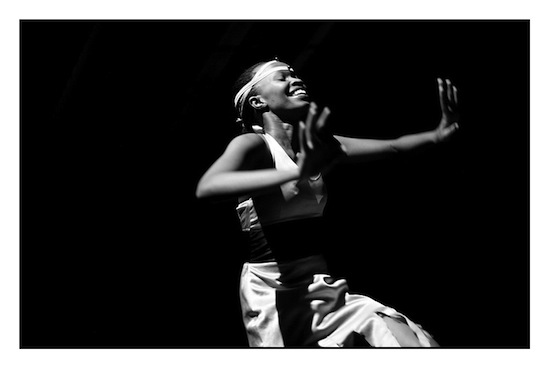
The Mashirika Creative and Performing Arts Group (mashirikia is Swahili for "organizations") is a company of Rwandan artists, actors, musicians and dancers gathered together under a theatre director born to a Rwandan family living in Ugandan exile; her name is Hope Azeda.
An artist at Makerere University, Hope migrated to a Rwanda she never knew after the 1994 Rwandan Batusti Genocide and has an extraordinary ability to take devastatingly ugly narratives from survivors of the most horrific genocide in modern history, treat them with skill, artistry and respect and collaborate with other artists to retell these stories in a stunningly beautiful way. With a name that bears her mission, Hope's theatrical treatments of the genocide through dance, music and theatre in a performance entitled Africa's Hope, both honors the loss incurred during this period in history and manages to avoid replicating the trauma. Mashirika is, true to their founder's name, a company of hope in a country that has experienced despair for too long.
It is perhaps entirely because Hope and other members of Mashirika are both Rwandan and exiles from Rwanda that they can approach the pain of genocide with such artistry and love. When this play of healing travels around the globe, it becomes a beautiful opportunity for other survivors of trauma to see a new world outside of the echo chamber with which they have been all too familiar.
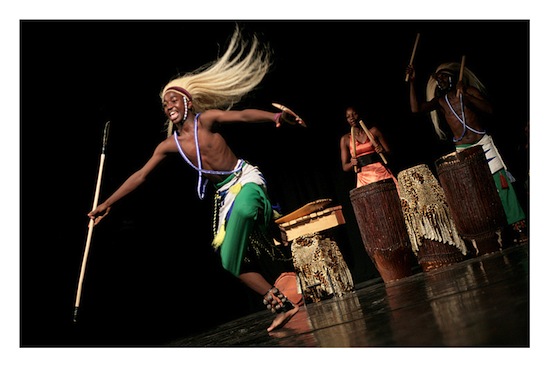
Los Angeles, for example, is a city perhaps as equally famous for its staggering wealth as its abject poverty, where the collective trauma of racism, poverty, immigrant oppression and gender violence plays a daily role in the lives of many of the communities who partner with the Applied Theatre Arts program at the USC School of Dramatic Arts.
As many residents of L.A. struggle with issues of oppression, Mashirika's message and methodology of hope are as critical for Angelenos as for Rwandans. Art, particularly mindful, poetic and critically relevant art, offers a means by which oppressed people can begin to translate the language of loss into a poetic vision of desire. After my fourth trip to Rwanda and my fourth experience with the ineffable resilience of this company's artistry of possibility in the face of disaster, I decided it was time to "mashirika" Los Angeles, and I approached Madeline Puzo, dean of the School of Dramatic Arts, about applying for a Visions and Voices grant to bring this company to L.A. and to the United States for the very first time.
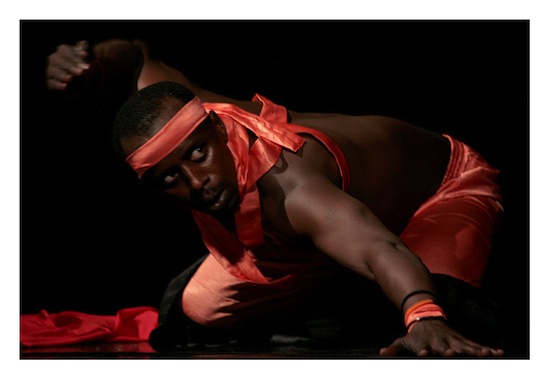
Federico Fellini once said, "The visionary is the only true realist." Mashirika's vision, as told through Africa's Hope, desires to create a new world where the voices of the dead are revived again through the poetry of meaning, movement, dance and song. This is what is so compelling about bringing Africa's Hope to urban L.A. This play explores multiple accounts of genocide from many different cultural experiences, and gives them poetic voice through a chorus representing Rwandans who are either ghosts or survivors. In one monologue, after a girl describes the horror of seeing a small child between 6 and 12 months old floating in the water, she asks the painful question: "what kind of man would kill a baby? What kind of man would kill a baby?" but the actress playing the girl works the question through to its non-rhetorical, painfully mindful conclusion: "A man not born to hate, but one who has learned hatred. A man like you or a man like me." Her words are transformed to their words, our words. We are all both swimming in the river, killing people or watching the carnage from the bridge.
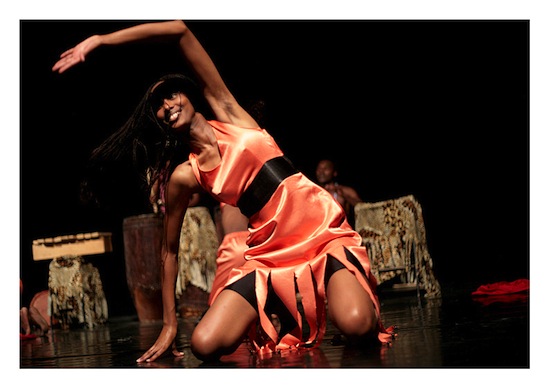
Thus, Africa's Hope employs the skill of character migration, nudging narratives of the genocide gently away from their individual experience into the realm of collective ownership. By the end, through all the intercultural portrayals of narratives from all sources about genocides all over the world, we are all implicated in, survivors of, and protectors against the genocide. We are all Africa, and therefore we are all Africa's hope. In a time of division of identities after the 20th anniversary of the L.A. uprising, on the brink of one of the most divisive elections in our country's history, and in a country where the gap between rich and poor has hardly been greater, Africa's Hope is not just a story of healing, it is healing.
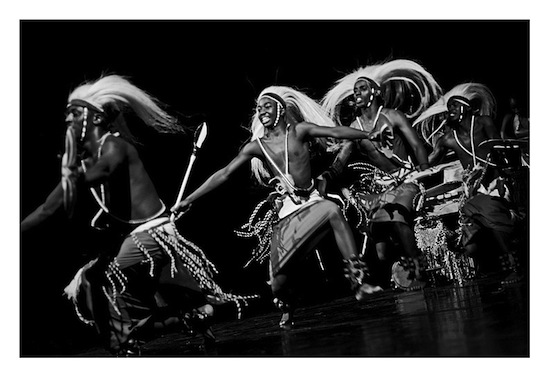
Brent Blair is the director of Applied Theatre Arts at the USC School of Dramatic Arts. The School is one of only a few dramatic arts programs in the country to offer a degree in applied theatre arts.
The Los Angeles performance of "Africa's Hope" is open to the public and is taking place on Wednesday, September 19 at USC. For more information and to RSVP, please visit this website.